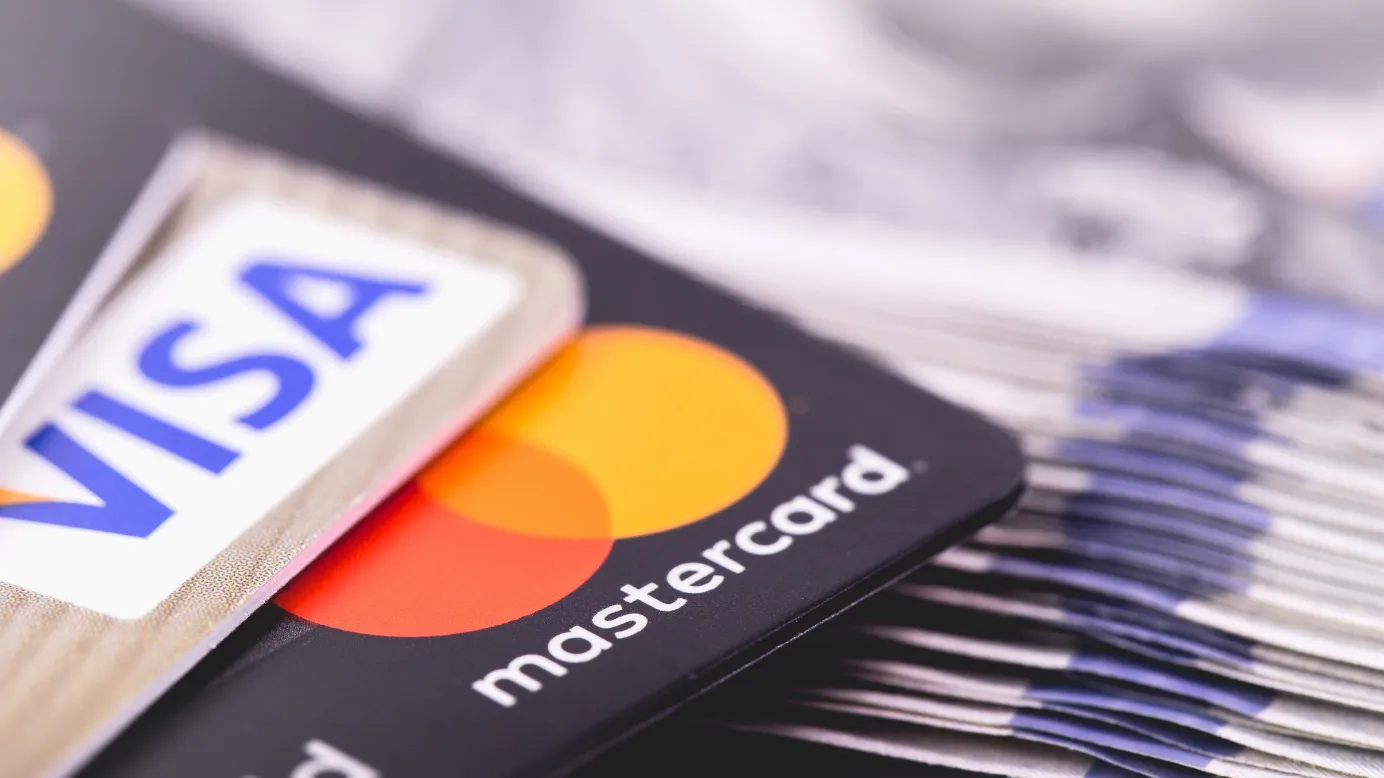The Hidden Potential of Prepaid Cards for Rewarding
Prepaid cards enable recipients to spend money on anything and everything up to the amount loaded onto the card. Their ease of use, simplicity, and convenience make them a highly desired option for rewarding. They are equivalent to cash, can deliver instant gratification, and can be customized.
On this page
If you were given an option to choose between money and gifts as a reward, what would you prefer? At least, a majority of them will go with money!
Speaking of rewards, though gift cards have been a popular choice in different verticals, businesses worldwide have witnessed prepaid cards stepping up the game altogether.
What is a prepaid card?
Prepaid cards are a “stored value” card – much like a credit or debit card – that can be used to pay for goods or services. Unlike credit or debit, however, prepaid cards aren’t dependent on a link to a savings, checking or credit account with a financial institution.
Prepaid cards, an alternate banking card, enable a receiver to spend money on anything and everything up to the amount that’s loaded onto the card.
This convenience also makes prepaid cards a popular choice when it comes to receiving a reward or an incentive.
Not just that—prepaid cards also offer ease of use, the simplicity, and the convenience of highly-desired rewards. They are equivalent to cash, can deliver instant gratification, are easy to use, customizable based on your business needs, secured, and versatile.
Whether it is acquiring new customers, motivating employees, or persuading sales channels, prepaid cards serve as an innovative way for businesses to keep their audience engaged.
How do prepaid cards benefit consumers?
Prepaid cards offer a wealth of benefits to consumers: there is less risk of overspending, they’re safer than cash, they’re easy to use and reload and they’re a viable alternative to using traditional credit or debit cards.
- Less risk of overspending: Unlike credit cards, prepaid cards help users stick to a budget by limiting spending to the available balance, making them a great tool for responsible financial management.
- Safer than cash: Prepaid cards are a safer alternative to carrying cash, especially for travelers. Additionally, quick and easy registration ensures protection in case of loss or theft.
- Easy to use and reload: Functioning like traditional debit or credit cards, prepaid cards can be easily reloaded through bank transfers, direct deposits, or cash deposits—both online and in-person.
- An alternative to banks: In 2018 the FDIC reported that 6.5% of US households were unbanked. That leaves 8.4 million US households that still need to operate in the economy without a checking or saving account. Prepaid cards offer unbanked consumers access to essential payment services.
- Secure alternative form of payment: For those concerned about data privacy, prepaid cards offer an extra layer of security, reducing the risk of personal or financial information being compromised.
How can prepaid cards benefit businesses?
Prepaid cards have emerged as a flexible and efficient financial tool for businesses looking to streamline payments, manage expenses, and reward stakeholders. Here’s how they can add value across different business functions:
1. Enhancing customer loyalty
By offering a convenient and preferred payment method, businesses can strengthen relationships with customers, fostering long-term engagement.
2. Expanding customer reach
Offering a dedicated prepaid card for exclusive use at your business gives both new and returning customers an added incentive to shop with you more frequently.
3. Optimizing channel incentives
Businesses relying on distributors, resellers, and partners can use prepaid cards as an efficient way to disburse incentives and bonuses. Instead of managing cash payouts or traditional reimbursement models, companies can instantly transfer rewards onto prepaid cards, reducing administrative burden and ensuring timely payments.
4. Streamlining employee & business expenses
Managing business expenses efficiently is critical for financial control and operational ease. Prepaid corporate cards provide a secure and streamlined solution for both employee expenses and broader business expenditures.
With prepaid cards, employees can easily make approved purchases—from business travel to office supplies—without waiting for reimbursements. Employers, in turn, can set spending limits, track transactions in real time, and prevent overspending. This reduces paperwork, minimizes fraud risks, and enhances budget control.
By integrating prepaid corporate cards, businesses ensure a seamless and transparent financial system, eliminating the hassles of cash reimbursements while providing employees with a convenient payment method.
5. Fleet management & travel expenses
Prepaid fuel and travel cards help streamline fleet expenses by providing drivers with dedicated funds for fuel, maintenance, and other travel-related costs. Businesses can monitor spending in real time, prevent misuse, and eliminate the hassle of handling cash reimbursements
6. Efficient freelancer & gig worker payments
For businesses relying on freelancers, gig workers, or contractors, prepaid cards offer a faster and more flexible alternative to traditional bank transfers. Instead of waiting for lengthy invoice processes, freelancers can receive payments directly onto their prepaid cards, improving cash flow and ensuring timely compensation.
Gig platforms such as Uber have introduced debit cards like the Uber Pro Card, allowing drivers to access their earnings instantly. This system eliminates traditional payment delays, offering freelancers immediate access to their funds and improving overall cash flow
How are prepaid cards better than cash incentives?
Here are some major reasons that make prepaid cards a better alternative to cash when rewarding or incentivizing someone.
Category | Prepaid Cards | Cash |
Security & Control | 100% secured with a unique PIN, can only be activated by the recipient. Can be easily enabled or disabled if needed. Provides fraud protection and ensures secure transactions. | Not secured, prone to theft, and requires bank details for direct deposit. No such control options are available. No protection against fraud or misuse. |
Distribution & Accessibility | Available in both plastic and virtual formats for seamless, contactless delivery. Instant disbursal via email or digital platforms, regardless of location. It can be sent in bulk to multiple recipients, saving time and effort. | It can only be distributed via direct deposit or physically handing it over. Cash delivery is complex and inconvenient, especially for remote recipients. Must be distributed individually, making it time-consuming. |
Tracking & Reporting | Usage can be tracked, ensuring accountability. Enables organizations to analyze reward program performance through data tracking. | Cash usage cannot be tracked. No tracking mechanism exists for cash incentives. |
Customization & Personalization | It can be personalized with a brand logo, colors, or name to enhance brand recall. | No branding or customization options available. |
Flexibility & Spending Power | Redeemable online and offline, offering greater spending flexibility. Can be configured as single-use or reloadable for ongoing rewards. | No flexibility—limited to where physical cash can be used. Cash is a one-time transaction with no reload option. |
Financial & Cost Efficiency | Saves on administrative costs compared to handling physical cash. Funds can be preloaded for planned incentives and budget management. | Cash incentives require additional resources for handling and distribution. No option to preload cash in advance. |
Program Implementation & Convenience | It is easy to set up and integrate into incentive programs. | It is difficult to manage incentive programs due to lack of tracking and reporting. |
Types of prepaid cards
Ideal for all types of incentive programs, be it small or large—prepaid cards from renowned networks, enable your program’s participants to have the liberty to choose the way they want to spend on their reward.
This is undeniably a huge leap forward from just getting them to select from a mere catalog of options with pre-selected merchandise.
Prepaid cards come in various forms, and they can be utilized based on the objective of the incentive program:
1. Open-loop prepaid cards
This is one of the most flexible types of prepaid cards and offers the widest appeal. Unlike gift cards, open-loop prepaid cards aren’t tied to a specific brand or a store. It gives cardholders the flexibility to redeem it for anything they want to.
These types of cards are:
- Accepted universally (wherever the issuing card’s network is accepted).
- Generally, these cards are identified by a Mastercard or Visa logo and can be used wherever card payments are accepted.
2. Digital open-loop prepaid cards
These are the digital versions of the open-loop prepaid cards, which provides the flexibility and aesthetics of physical cards, but with extra benefits of digital convenience and instant delivery.
These types of cards can be:
- Delivered faster because they are virtual in nature
- Received instantly by the recipient because they can be easily sent through email
- Redeemed quicker by the recipient on anything that they would like to spend on
3. Multi-merchant prepaid cards
Popularly known as network-branded cards, these allow the cardholder to spend the reward on a certain category or a specific group of merchants. Say, for instance, you may send “Health & Wellness” themed multi-merchant prepaid cards to your participants, which can be redeemed at different spas, gyms, and other healthcare retailers.
These types of cards let you:
- Curate multiple options to choose from
- Give a creative latitude
There’s no doubt that prepaid cards are always a better and safer alternative to cash incentives. When prepaid cards are used for incentive programs, you get much more than just a plastic product.
Managing employee rewards, partner incentives, and business expenses can quickly become a logistical nightmare—lost receipts, delayed reimbursements, and manual tracking slow down operations. Xoxoday Plum’s prepaid card solution takes the complexity out of the equation by offering a seamless, instant, and controlled way to distribute funds.
Effortless rewards & incentives – Instantly load funds onto prepaid cards for employees, channel partners, and freelancers without administrative delays.
Real-time expense management – Set spending limits, track usage, and prevent overspending—all from a centralized dashboard.
Flexibility & choice – Recipients can use their prepaid card across multiple categories, ensuring a rewarding experience.
Explore Plum and make financial disbursements a breeze!
The hurdles of global rewarding and how prepaid cards can help
Sending rewards globally is hard. Ever handled international marketing campaigns or surveys to acquire new customers? Or persuaded sales channels to buy a product? At least, tried engaging remote employees? If you have, then you probably know the challenges of rewarding your global participants already.
Sending cash is complicated and nearly impossible. No doubt. Okay, this begs to an important question— why not use digital rewards then? Well, they do eliminate the hassle of shipping issues (as the delivery mode is instant and via email) but e-gift cards from popular brands like Amazon, Walmart, or Starbucks have their own limitations.
A majority of them are accepted only in a few countries or maybe, only in countries where they are issued. Take Amazon gift cards for example. When it comes to international flexibility, no one can outrank them but still you don’t have the perk to redeem an amazon.com’s gift card at amazon.de or Amazon Germany’s marketplace.
So, imagine rewarding a US-based amazon e-gift card to someone sitting in Germany? Will that work? Even worse, let’s say that the receiver isn’t an Amazon customer at all. He/she prefers Walmart instead. Then, your reward makes no sense at all.
That’s why businesses prefer prepaid cards as a mode of reward. As digital incentives, prepaid cards (like Visa or MasterCard) serve as an incredible reward solution.
Prepaid cards, as an incentive, can be delivered in two ways:
- Physical prepaid cards
- Virtual prepaid cards
While there is a thrill to receive and hold a plastic prepaid card as a reward, people these days prefer the convenience of mobile or online transactions. Virtual prepaid cards not only meet this expectation but also make reward distribution tamper-proof and instantaneous.
Though the outcome of using them is the same, the benefits of sending virtually prepaid outweigh physical prepaid cards.
Benefits of virtual prepaid cards to reward or incentivize your recipients:
- Instant delivery
- Less expensive
- Issued & received faster
- Redeemed faster
- More flexible
- Accepted in-store or online
- Automatic currency conversions
- Available worldwide
- Global coverage
Sending a virtual Mastercard or Visa prepaid card is a perfect and hassle-free way to reward or incentivize recipients globally. They are accepted in 150+ countries, with automatic conversions to the corresponding local currency.
Most importantly, prepaid cards give phenomenal power to merchants and companies to understand a user’s purchase behavior.
For instance, a market researcher sitting in the U.S. can buy virtual visa prepaid cards worth $50 (in USD) and send them to multiple survey respondents located in Australia, India, and Canada. The recipient can use the loaded currency of $50 to AUD, INR, and CAD to make local purchases.
The difference between a gift card and a prepaid card looks minimal but is miles apart. Which one makes a better present– time to decide.
Conclusion
Typically, prepaid cards are integrated with different financial instruments as well as tracking tools, which are exclusively developed to help solve business issues.
To conclude, the choice to receive a reward or incentive has changed. The digital era has faded cash transactions. They are no longer preferred. Virtual prepaid cards have taken over because they are a much more efficient and tangible way to deliver a reward. Not just that, it is easier to distribute globally and promises to offer real choices.
Plum makes digital rewards effortless by offering a seamless prepaid card solution that enables businesses to distribute incentives globally with ease. With instant delivery, multi-currency support, real-time tracking, and a vast reward catalog, Plum ensures a rewarding experience for both businesses and recipients.
Say goodbye to outdated cash transactions and embrace the future of digital rewards—book a free demo and we will get you started!
FAQs
1. Why should you choose virtual prepaid gift cards?
Prepaid gift cards are dynamic in nature. They can be used anywhere, either on anything or can be limited to specific spend types. They support both repeat incentives and one-time rewards, which can help drive loyalty. Be it rewarding customer behavior to increase frequent purchases or incentivizing your employees or channel partners for performance-based initiatives, prepaid cards drive engagement.
2. Can prepaid cards be personalized?
Yes, branding a prepaid gift card with your logo and brand name is 100% possible. In fact, branding is an excellent way to create awareness and influence customer behavior. All you need is a good reward payout solution provider to not only help fulfill your card requirements but also enable you to create unique incentives schemes for rewarding your target audience.
3. How do recipients receive a virtual Visa/Mastercard?
The process involves 3 simple steps:
- Step 1: Recipients receive an email, which includes the reward payment, option to register their prepaid card, and a link to claim the loaded currency.
- Step 2: Once the prepaid card registration is completed, their Mastercard or Visa prepaid card number is all set for immediate use.
- Step 3: Recipients also have an option to create digital wallets to easily access and secure their Mastercard or Visa number.
4. Do prepaid cards come with expiration dates?
Yes, both physical and virtual prepaid cards (like Visa or Mastercards) come with an expiry date. However, this also depends on the type of Mastercard or Visa card you choose. Most of them have an expiry of 6 - 12 months from the issued date.
5. Should you use a Mastercard or a Visa prepaid card?
All Mastercard and Visa prepaid cards work the same way. However, your choice largely depends on the currency in which you want the reward to be issued.
6. What is the global coverage of Mastercard and Visa prepaid like?
Speaking of country coverage, Visa is accepted in 200+ countries and territories whereas Mastercard is accepted in 210 countries. As far as global acceptance is concerned, Visa is on the higher side at 56.7 million than Mastercard which is at 47.7 million. Overall, both Visa and Mastercard have similar global acceptance.


















